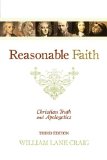5.5. This post is dedicated to the Sermon Writer’s Block.
5. I really liked Michael Bird’s (relatively) short post on how the Penal Substitutionary Atonement and Christus Victor models of atonement work together.
4. His biting sarcasm is largely what makes Carl Trueman so popular, but it also makes it easy to miss some of his better stuff. In an article titled “The Price of Everything,” Trueman suggests that “cynicism, along with its close cousin pessimism, are among two of the greatest contributions that historians can make to the life of the church.”
3. Some of you have heard about Harold Camping and his predictions that the end of the world is coming in October of this year (and the rapture is only weeks away!). W. Robert Godfrey of Westminster Seminary California has written an intriguing, if not sad, series on “Harold Camping and the End of the World”. It’s worth reading through it, as it’s both insightful and instructive, from someone who has known Camping for a long time. Part 1. Part 2. Part 3. Part 4. Update: I somehow missed Part 5. Sorry.
2. Earlier this morning Justin Taylor posted a really helpful chart called “Differences between Jesus and the Levitical High Priests,” based on Hebrews 7 and 9. Don’t think I won’t be stealing this for future use.
1. The aforementioned Carl Trueman has created a bit of a stir, particularly with the “New Calvinist” crowd, recently with some posts regarding American mega-conferences and the celebrity culture of American evangelicalism. As I said earlier, I think his sarcasm (not to mention his vast use of over-generalization, which granted is a feature of satire but can be counter-productive) can obscure his point. Never fear, the ever reasonable Tim Challies steps in to help a bit (with links to Trueman’s posts, if you’re interested). It’s a good read, and a great topic to consider more deeply. I’d like to think we can learn a thing or two here.










